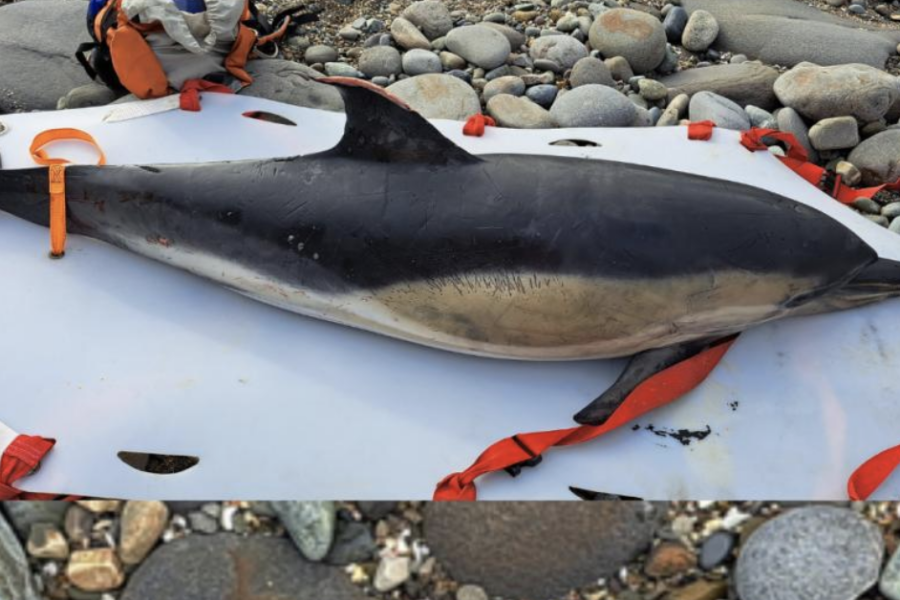The adult female dolphin was discovered on Newgale beach last month.
Tests have shown that the creature – who died from other causes – was carrying the avian flu strain.
In recent weeks, a dolphin in Dorset and a harbour porpoise in Yorkshire have also been found to be infected with the virus, which previously in the UK has been confined to seals, otters and foxes.
Until then, only four other cases had been detected in cetaceans in the entire world.
Avian influenza – H5N1 – has spread around the globe over the past 18 months, causing the deaths of hundreds of millions of domestic birds and countless wild ones.
There are fears that its spread to mammals could cause the virus to acquire a mutation which would allow it in infect humans.
Cardigan-based Mat Westfield, who is the Marine Environmental Monitoring Strandings Co-ordinator for Wales, collected the female short-beaked common dolphin from Newgale beach on February 19 for the Cetacean Strandings Investigation Programme (CSIP).
He said: “As normal practice, the dolphin was then transferred to London Zoo where a team carried out a post-mortem.
“During the post-mortem, various different samples were taken and sent off to various labs across the UK and Europe for further testing.
“The Animal and Plant Health Agency (APHA) came back to us confirming that two dolphins and one porpoise had tested positive for avian bird flu.
“This was not the cause of death in any of the three animals.
“The common dolphin that we collected off Newgale beach had died from blunt force trauma, most likely caused by another dolphin.”
He added: “This is now the start of a process in which we look in to how the dolphins contracted the bird flu, if it has mutated at all and what is the threat to the dolphin population around the Welsh coast.
Wildlife volunteers will be looking closely at their future working practices in the light of the latest information.
Sea Trust is Pembrokeshire’s most active marine conservation body, with up to 40 volunteers and staff out on the county’s cliff tops.
The organisation records cetaceans every week year-round, and also surveys from the Stena Line ferry between Fishguard and Rosslare.
The Trust’s Cliff Benson said: “By using data gathered over the past twenty years we hope to be able to monitor the situation over the coming months.
“We will also be working with other local groups such as Welsh Marine Life Rescue, and British Divers Marine Life Rescue to set up protocols as to dealing with possible casualties.”
In the meantime, advice to the public has not changed, emphasised Mat Westfield.
He said: “They should not be touching any marine animals they find on the beach as they pose a health risk.
“Dolphins, porpoises and seals all carry parasites and various diseases that can be harmful to humans.
“Anyone who comes across an animal stranded on the beach should call our CSIP strandings line on 0800 6520333. “
